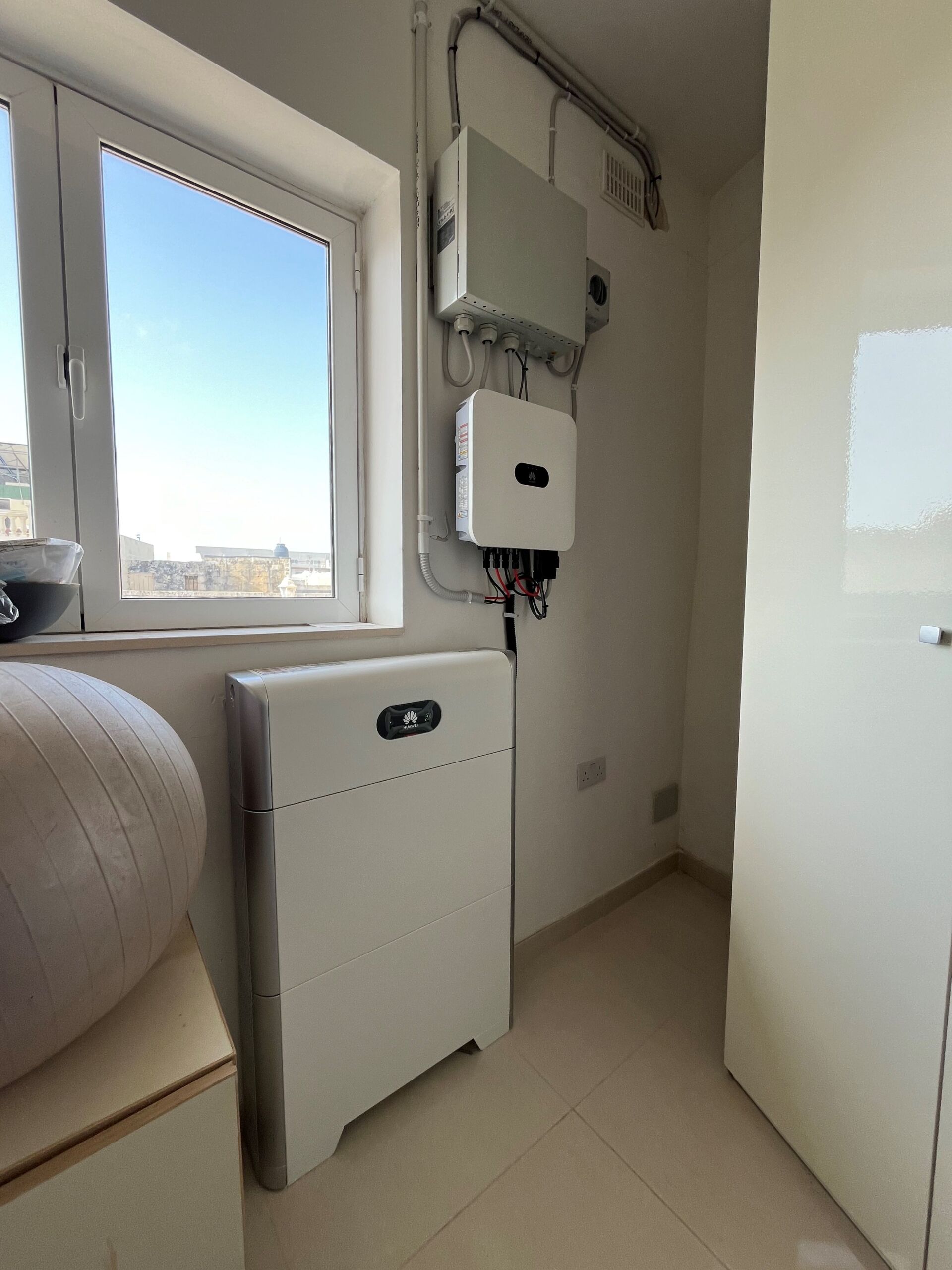Until recently, many of our customers expressed scepticism about financial viability of owning a home battery system. The relatively high purchase cost and uncertain return generated doubts about whether solar batteries are a great investment. This may have indeed been the case about 5 years ago, when high feed-in solar tariffs, low import tariffs and absence of government incentives for battery systems made investment in grid connected battery systems a risky choice.
However today, situation is totally different. Feed-in tariffs for solar PV systems installed with the benefit of a government grant have been reduced from €0.165/kWh to just €0.105/kWh, making export of surplus solar energy generated during the day much less attractive. Conversely, lower feed-in tariffs encourage households to shift to self-consumption, that is to try to consume as much as possible own PV energy and to avoid having to buy energy from Enemalta at much higher tariffs.
Global developments that resulted in considerably higher energy generation costs created an uncertainty over whether energy tariffs will remain stable in the future. In the recent years, Malta heavily subsidized energy tariffs for domestic and commercial consumers, however there are doubts over whether these multi-million annual subsidies can be sustained in the future. Because of this uncertainty, Maltese households now view investment in a home battery system as being the best insurance policy against potential rise in energy tariffs in the future. This makes perfect sense, since no matter how high energy tariffs may go up, an owner of a home PV and battery system is guaranteed to offset own household consumption from own produced solar energy.
Additionally, recent spate of nation-wide power cuts undermined confidence in the ability of Enemalta’s generating capacity and distribution infrastructure to cope with increasing energy demand. Although Enemalta is continuously investing in upgrading its distribution network and is in the process of creating additional generating capacity, this process is not likely to completely eliminate power cuts any time soon. On the other hand, owners of home battery systems can be self-sufficient and enjoy power supply even during a power cut.
Finally, recent government grants scheme whereby one can get a rebate of up to 80% of the costs of a battery system, capped at €720 per kWh of storage capacity and up to maximum of €7,200 per system, has effectively reduced initial capital outlay of investing in a solar battery system to only a fraction of its market cost. This scheme has been extremely popular with Maltese consumers: in the first two months since opening of the new scheme at the end of February 2024, over 600 households have applied for a government grants incentive.

